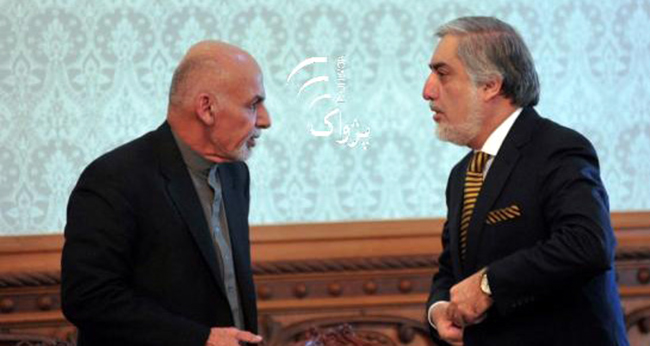Downplaying the precarious security situation and escalated militancy will deteriorate the status quo. The conflict in government’s machinery and mistrust between the heads of National Unity Government (NUG) will aggravate the political crises and create further challenges. On one hand, the death toll, including soldiers and civilians, has reached its peak and the Taliban outfits have intensified their attacks, on the other hand, the officials redirect their efforts and energy into less significant issues – this will lead the country to a political quagmire.
Last month, the Chief Executive Officer (CEO) Dr. Abdullah Abdullah criticized the president’s unilateralism, raising issues such as appointments made and merits awarded without consulting him. He in particular blamed President Ghani for not making time to meet with him one-on-one to discuss “fundamental issues,” leading into his most stinging comment that a person who “does not have the patience for a discussion, also is not fit for the presidency.” He then defended his participation in the NUG and discussed the challenges facing the country and how they had, in his view, stopped the government from implementing the NUG agreement. He stressed the need for elections, electoral reform and a Loya Jirga that would decide on whether to turn his position into an executive prime ministerial position. Towards the end of his speech he said that, despite his patience and prudence, the time to be deceived by mere words was over.
In response to Abdullah’s statement, Ghani said, “I too do not trust those who do not trust me because of their negative interests … whenever I take action against corruption, part of a faction which has taken hundreds of millions raises its voice to say that the president monopolizes all power.” His public reaction was followed by a terse palace statement that stressed the importance of unity and described Abdullah’s remarks as not in line with “the norms and spirit of governance.”
Afghan former President Hamed Karzai, in an interview with Radio Azadi, as usual, emphasized the need for a Loya Jirga and believed that if a Loya Jirga was not convened, it would cause problems for our country and increase discontent. According to him, the traditional Loya Jirga would not only approve and renew the legitimacy of the system but also found a way out of the challenges.
Subsequently, a meeting was held between CEO and President Ghani, in which Abdullah presented a list of demands that was immediately leaked to the media. His demands focused, first of all, on the full implementation of the political agreement, which included “purposeful and honest” participation and representation; joint decision making and effective cooperation; the delegation of duties to the post of executive prime minister and non-interference in his affairs; full participation of the chief executive in the process of proposing and approving appointments on different levels and equitable participation in the appointments process of high ranking government officials; the establishment of a commission towards amending the Constitution; expediting the process of electoral reform; address the “time-wasting” that has prevented the start of the electronic ID card distribution; a timeline for the implementation of the political agreement.
The second meeting took place on August 25, 2016 was meant as an opportunity for the president to respond to Abdullah’s demands, and to present his own stance, but instead the two men reportedly discussed confidence-building measures. The CEO’s office released a statement describing the atmosphere as “cordial” and saying that “the president had expressed his views” and “both leaders agreed to discuss the effective conduct of affairs within the framework of the political agreement in joint meetings next week.”
After the third meeting on August 28, 2016, the CEO’s office released a statement saying the two leaders had reached agreements on the electoral system, the distribution of electronic ID cards, the establishment of a commission to amend the constitution and the appointment of new members to the committee to oversee the implementation of the political agreement.
On September 03, 2016, in a meeting with the Special Representative of the UN Secretary General, where they discussed the political developments, the electoral reform process and the meetings between the NUG leaders, Abdullah seemed to announce the end of the rift when he said, “we adhere to reforms, working together with a new spirit and joint commitment.”
The conflicts between the heads of NUG will damage their fame and reputation among the nation and lead to public distrust. Afghans expect much from them and hope that they will resolve the political challenges and protect their rights and freedom rather than being involved in conflicts between themselves. Such conflicts will let the political opponents to fish in troubled waters and muddy the issue in their own interests. After all, the Taliban fighters will carry out their offensives more confidently as the nation witnessed deadly attacks in recent weeks.
To mitigate the insurgency and protect the nation’s rights and freedom, the officials will have to settle their own conflicts and emphasize the spirit of unity and brotherhood for the public. They are to centralize their energy on the issue of terrorism and counter insurgency to gain the national support rather than creating a rift between state and nation. So, the NUG’s heads have higher responsibilities regarding national issues, as they promised during their campaigns, and it is time to fulfill them.
Home » Opinion » Political Conflicts Will Aggravate the Challenges
Political Conflicts Will Aggravate the Challenges
| Hujjatullah Zia

